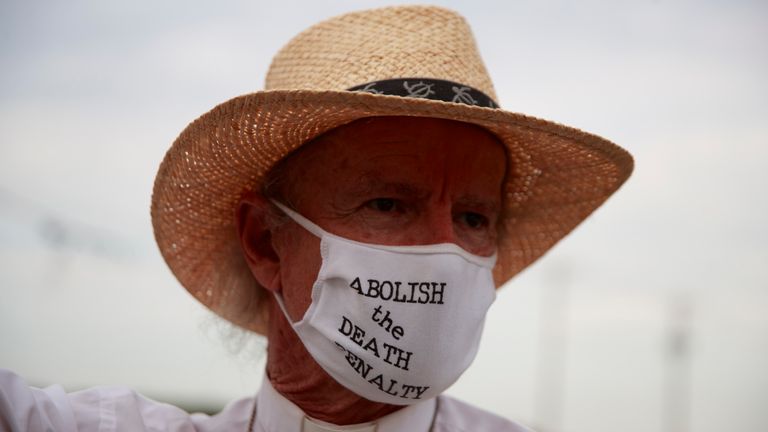The US Justice Department is quietly amending its execution protocols, to possibly end the use of lethal injection – and clear the way for firing squads and poison gas.
The amended rule, published on Friday, allows the US government to conduct executions by lethal injection or use “any other manner prescribed by the law of the state in which the sentence was imposed”.
A number of states allow other methods of execution, including electrocution, inhaling nitrogen gas or death by firing squad.
It remains unclear whether the Justice Department will seek to use any methods other than lethal injection for executions in the future.
The rule, which comes into effect on 24 December, comes as the Justice Department has scheduled five executions during the lame-duck period, including three just days before president-elect Joe Biden takes office.
A spokesman said the change was made to account for the fact the federal death penalty act requires sentences be carried out “in the manner prescribed by the law of the state in which the sentence is imposed”, and some of those states use methods other than lethal injection.
The change is likely to set off intense criticism from Democrats and anti-death penalty advocates, as Donald Trump’s administration tries to push through a number of rule changes before he leaves office.
A spokesman for Mr Biden said earlier this month that the president-elect “opposes the death penalty now and in the future” and would work to end its use.
But he did not say whether executions would be paused immediately once Mr Biden takes office.
Attorney general William Barr restarted federal executions this year after a 17-year hiatus.
This year, the Justice Department has put to death more people than during the previous half-century, despite waning public support from both Democrats and Republicans for its use.
All states that use the death penalty allow lethal injection – and that is the primary method in all states where other methods are allowed, according to data compiled by the non-profit Death Penalty Information Centre.
As lethal injection drugs become difficult to obtain, some states have begun looking at alternative methods for carrying out death sentences.
Alabama joined Oklahoma and Mississippi in 2018 approving the use of nitrogen gas to execute prisoners, allowing the state to asphyxiate condemned inmates with the gas in some cases.
In some states, inmates can choose the method of their execution. In Florida, for example, an inmate can specifically ask to be put to death by electrocution and in Washington state, inmates can ask to be put to death by hanging.







